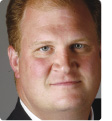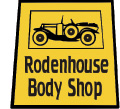
| Case Study | |
| CCC News Wire | |
 |
Growing through Efficiency: Rodenhouse Body Shop |
 By Joe Allen By Joe Allen |
And while she had a general working knowledge of the business, she’d been spending her full-time employment elsewhere. Now faced with a host of decisions that needed to be made to make the small shop as economically viable as possible, she had to think quickly. The first decision? “Within a week, I had purchased a computer. With the help of a friend, we had it up and running,” said Rodenhouse, knowing that it would be easier to keep track of all the necessary details. “I knew we needed to go electronic the day I walked through the door as an owner. The ability to find what you were looking for electronically instead of rummaging through a pile of papers in folders tucked away in a filing cabinet was important. I wanted to be able to focus on the three to four other things I have to get done, such as spending more time with the customer. I don’t want to spend extra time chasing paper.” With the location proving itself physically too small—there wasn’t enough room for a proper paint mixing station, customer bathroom or computer station—she was able to secure a loan and remodel a vacant property next to the existing facility in 1995. That same year, Rodenhouse began writing electronic estimates using EZEst®—CCC’s first generation PC-based estimating system. As the traffic in the shop began to grow along with the expansion, she obtained another electronic estimating system and ran both of them concurrently to help facilitate her multiple DRP relationships. She continued to use the two systems until the end of 1997, at which point Rodenhouse decided she needed to use only one. “I decided that having two systems not communicating with each other wasted management time,” said Rodenhouse. “When you’re a smaller shop, everyone is doing at least three jobs. The phone is ringing, everyone is asking questions, and you’re trying to finish up an estimate at the same time. Being able cut out those couple of extra keystrokes makes a big difference over the course of a day.” In addition to simplifying the number of processes by going to CCC estimating solution, Rodenhouse said product support was very important. “Support is a big part of the decision-making process with any product or service,” added Rodenhouse. “When I need a question answered, I want to speak to someone. If there are questions that you need answered—and can’t get it, what’s the point of having the product? In 2003, her continued success at the Grand Rapids location provided her with the opportunity to build a green-field facility in neighboring Caledonia, Michigan, where her son, Andy manages the operation. Getting back to the aspect of maintaining DRP relationships and getting answers, Rodenhouse said the communication process between insurance carriers and the two repair facilities is virtually seamless. To date she is managing six DRP relationships. “When you’re working through CCC Pathways®, it’s nice to have the ability to reach multiple carriers through one point of access. It’s another efficiency that we like,” she said. And as Rodenhouse Body Shop expanded, so did the number of CCC Pathways utilities Rodenhouse is utilizing, including CCC’s fully integrated Paintless Dent Repair and Recycled Parts Services—the latter being the most recent addition. “I really like the way the Recycled Parts feature works,” said Rodenhouse, who said the feature allows her control over a potentially difficult process. Repair facilities can access a database of approximately 1,900 suppliers nationwide offering more than 26 million parts, accessible by clicking on a tab within the estimating solution. “It cuts a lot of the manual legwork out of the process, and it’s a real time-saver. There isn’t a lot of calling on the phone to find the right part,” said Rodenhouse. Another benefit she highlighted is the ability to take an estimate and use it as a road map to direct the customer through the steps of what needs to be done. “People like to know what kind of work is being done to their car,” said Rodenhouse, “so it’s nice to be able to easily explain the estimate to them. Other systems are difficult for the customer to understand. Whenever I write an estimate for a customer, I try to walk through it with them. When I’m doing that, you can read it to them and you don’t have to jump, hop and skip all over like you do with the other estimating systems. And they understand what you’re saying!” As far as plans for the future, Rodenhouse said she is looking forward to continued success. Volume and revenues have tripled since she’s taken over the reins, generating approximately $1.3 million in 2005. And while she keeps a close eye on the collision repair industry, there is one element of which she’s certain: the emerging importances of having your electronic information systems speak a universal language. “The future is a lot like the book The World is Flat,” said Rodenhouse. “It discusses the impact of integrated software programs. That is the future of business. The body shops of the future will have to have the electronic information and management systems in place to process claims and other industry information faster, quicker and more affordably.” Joe Allen is Group Vice President of Auto Sales Group at CCC Information Services Inc. |
 When Diane Rodenhouse inherited the reins of Grand Rapids, Michigan-based Rodenhouse Body Shop in 1993, it was a single-location facility with two employees and zero computers. “It was a small shop,” said Rodenhouse, “no doubt about that.”
When Diane Rodenhouse inherited the reins of Grand Rapids, Michigan-based Rodenhouse Body Shop in 1993, it was a single-location facility with two employees and zero computers. “It was a small shop,” said Rodenhouse, “no doubt about that.”